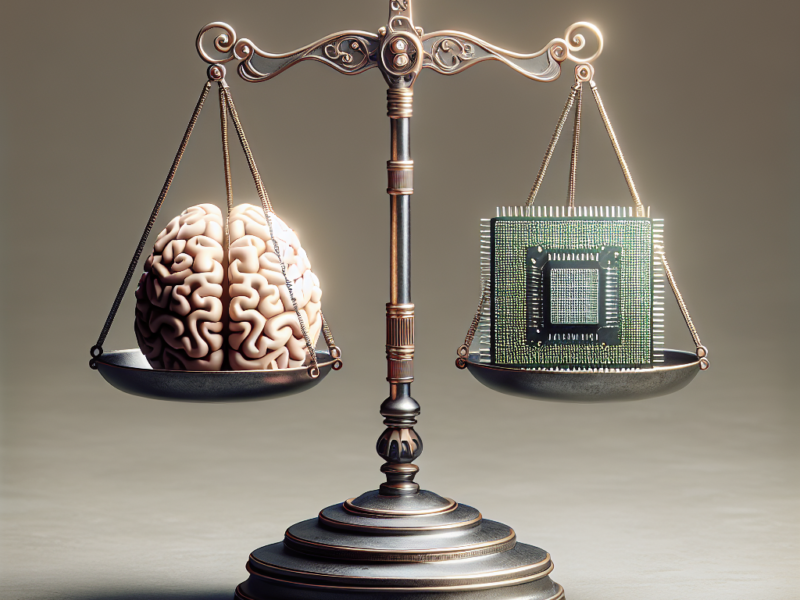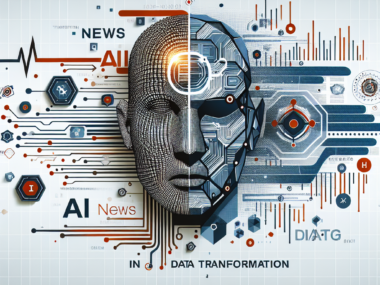As artificial intelligence (AI) technology continues to evolve at a breakneck pace, the debate surrounding its regulation has intensified. From the automation of jobs to the ethical implications of deepfake technology, the ramifications of AI are far-reaching and complex. Policymakers worldwide are grappling with how to effectively regulate a field characterized by rapid innovation and a host of ethical concerns, setting the stage for a new era of governance that balances innovation and accountability.
The Importance of AI Regulation
The urgency for AI regulation stems from the profound impact these technologies have across various sectors, including healthcare, finance, transportation, and even social media. AI systems can empower groundbreaking advances, yet they also pose risks, such as bias in algorithms, invasion of privacy, job displacement, and security vulnerabilities. Without clear regulatory frameworks, the potential misuse of AI could lead to significant societal harm.
Current Global Landscape of AI Regulation
In response to these challenges, governments and organizations around the globe are taking steps to establish frameworks designed to regulate AI technology. Here are some of the most notable developments:
European Union’s AI Act
The European Union is at the forefront of AI regulation. In April 2021, the European Commission proposed the AI Act, which aims to create a comprehensive framework for AI that prioritizes ethical usage and human rights. The Act categorizes AI applications based on risk levels—minimal, limited, high, and unacceptable—imposing stricter requirements on those deemed high-risk, such as facial recognition technology and AI used in critical infrastructure. If adopted, the AI Act would establish a precedent for how AI is governed globally.
U.S. Federal and State Initiatives
In the United States, the regulatory environment for AI is more fragmented. While the Biden administration has made strides to address AI through executive orders and funding for AI research, coherent national legislation has yet to emerge. Certain states, like California, are taking initiative on their own. For example, California’s Automated Decision Systems Accountability Act aims to ensure transparency and accountability in AI systems used by government agencies. Meanwhile, companies are increasingly implementing AI ethics committees to better navigate these waters.
China’s Approach to AI Regulation
China is also moving rapidly to regulate AI technology, with its Ministry of Industry and Information Technology unveiling draft regulations in 2021 that seek to ensure data privacy and security in AI systems. The Chinese government emphasizes the need for “trustworthy AI” to mitigate risks associated with surveillance and social credit systems. As such, China is balancing innovation with its vision of social stability and control over technology.
The Role of International Organizations
International bodies like the OECD and the United Nations are playing critical roles in setting standards for AI governance. In 2019, the OECD adopted its Principles on AI, which emphasize that AI systems should foster inclusive growth, human-centered values, and transparency. Additionally, the UN is focusing on AI’s implications for human rights and is exploring ways to ensure that AI serves humanity’s best interests.
Ethical Considerations and Challenges
While regulatory frameworks are essential, they must also address the ethical dilemmas unique to AI technologies. Key considerations include:
Bias and Fairness
AI systems are only as good as the data fed into them. Historical biases present in data can lead to unfair outcomes, disproportionately affecting marginalized populations. Regulators need to enforce guidelines that ensure rigorous testing for AI systems to mitigate bias.
Privacy and Surveillance
With AI’s growing integration into daily life, the potential for invasive surveillance increases. Policymakers must navigate the thin line between public safety and individual privacy. Legislative measures should promote transparency in data collection and provide users with control over their information.
Autonomy and Accountability
As AI systems become more autonomous, questions arise about the accountability of human versus machine decision-making. Establishing clear lines of accountability and liability for AI actions is crucial, whether it involves accidents caused by autonomous vehicles or erroneous judgments made by algorithmic systems.
Looking to the Future
As governments and organizations continue to navigate the complexities of AI regulation, a collaborative approach will be essential. Stakeholders—including technologists, ethicists, and civil society—must engage in ongoing dialogue to develop frameworks that are not only robust and adaptable but also internationally cohesive. Furthermore, fostering innovation while ensuring ethical oversight will ultimately drive trust and wider adoption of AI technologies.
In conclusion, as AI evolves, so too must our understanding and regulation of it. By addressing ethical concerns and establishing clear guidelines, society can harness the benefits of AI while safeguarding against its potential harms. The path ahead may be riddled with challenges, but it is also replete with opportunities to shape an ethical future for AI that aligns with the values of humanity.











